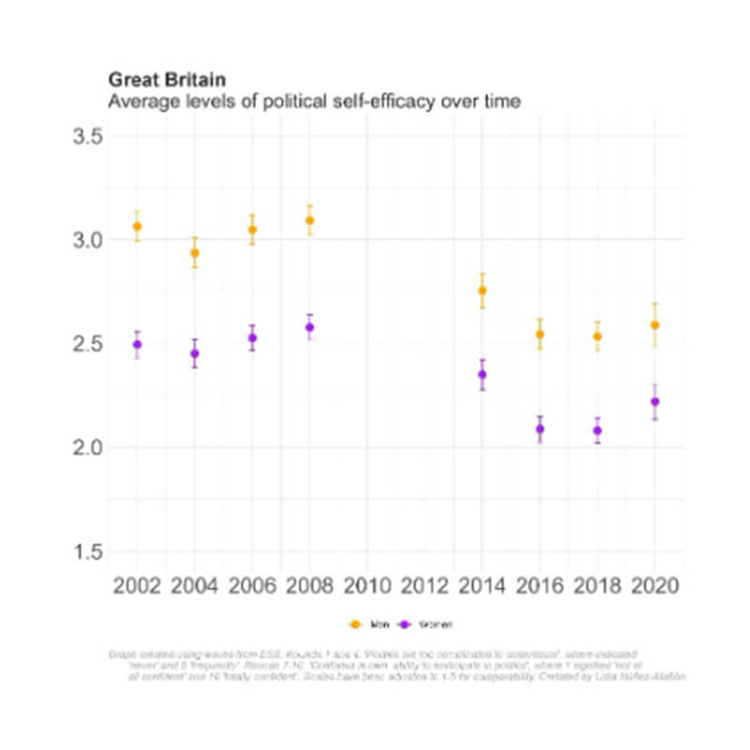A new study from the University of Roehampton and Universidad Carlos III de Madrid reveals that the political confidence gap between males and females in England significantly widens between ages 11 and 16.

Furthermore, the study shows that creating an environment for an open classroom discussion boosts the confidence of boys but not of girls.
Data from the European Social Survey (ESS) 9th wave, 2020, shows that, on average, men report higher political confidence than women in Great Britain and across other European countries, this gap has remained stable over the last 20 years. The new study shows that the gap develops early in life.
The research, based on data from the Citizenship Educational Longitudinal Study in England, was carried out by Professor Bryony Hoskins, Chair of Comparative Social Science at the University of Roehampton, and Gema Garcia-Albacete of Universidad Carlos III de Madrid.
The data collected by The National Foundation for Educational Research indicated that while male students' political self-confidence significantly increases from the age of 11 to 16, female students' political self-confidence remains unchanged. In addition, classroom discussions contribute to widening the divergent effects for girls and boys. Previous studies argue that boys tend to dominate classroom discussions and receive more positive feedback from both peers and teachers, which boosts their political self-confidence. Girls, on the other hand, fare less well with open classroom discussion, participate less and are more likely to receive negative responses from both peers and teachers when they do speak, hindering their development.
The study highlights the importance of equitable educational practices and the need for targeted interventions to support girls' political self-confidence, with the aim of reducing the gender gap and strengthening democratic participation. Professor Bryony Hoskins says: "To address this gender gap, schools need to create more inclusive environments where girls feel equally empowered to participate in political discussions and activities. By doing so, we can foster a generation of young women who are confident in their political voice and go on to be future political leaders."
Professor Gema García-Albacete says: "Our next step is to identify the key challenges that girls face in the classroom when it comes to building self-confidence. Once we understand these obstacles, we can develop new tools to help girls gain the confidence they need to actively participate in the political sphere."
